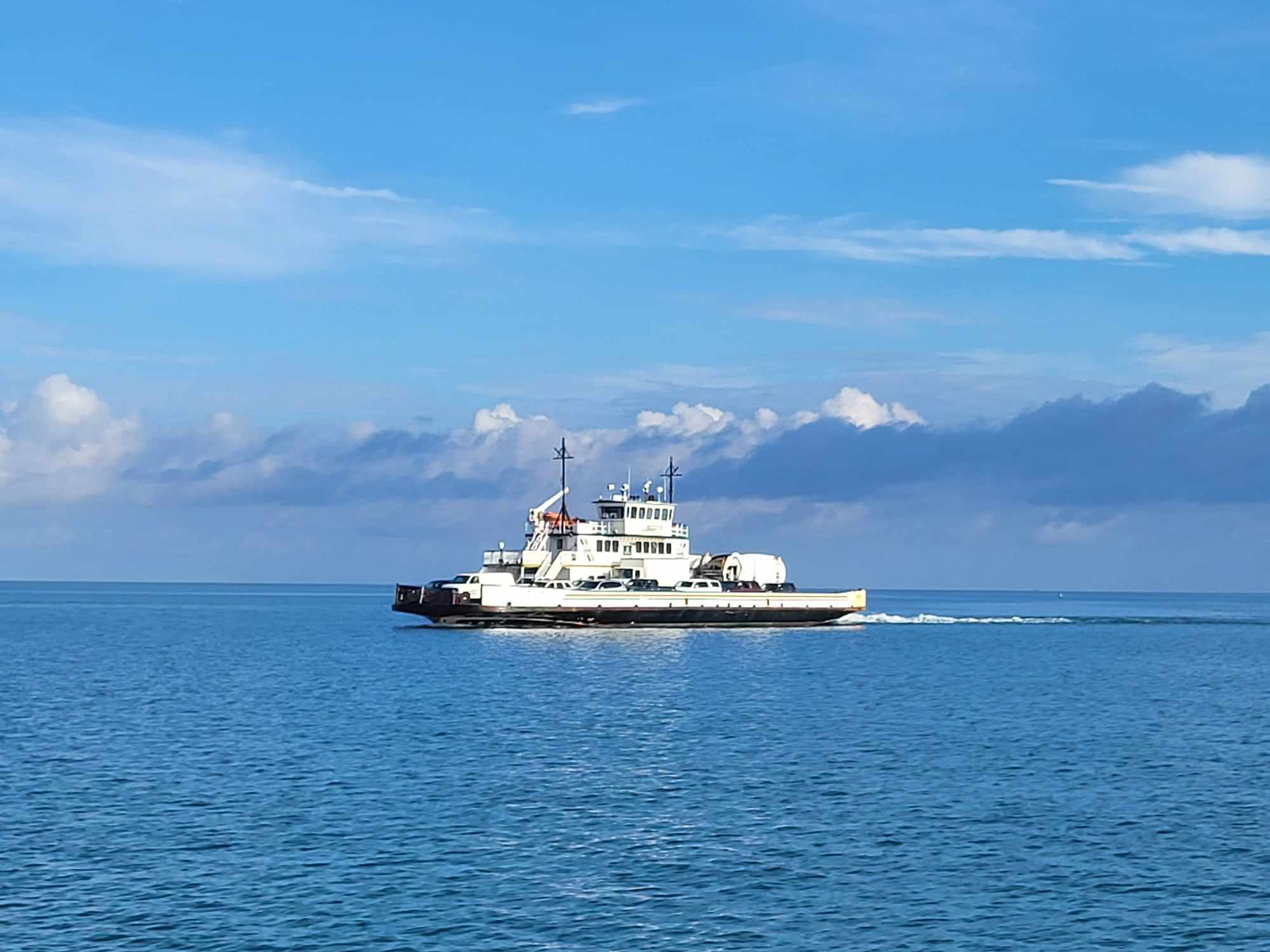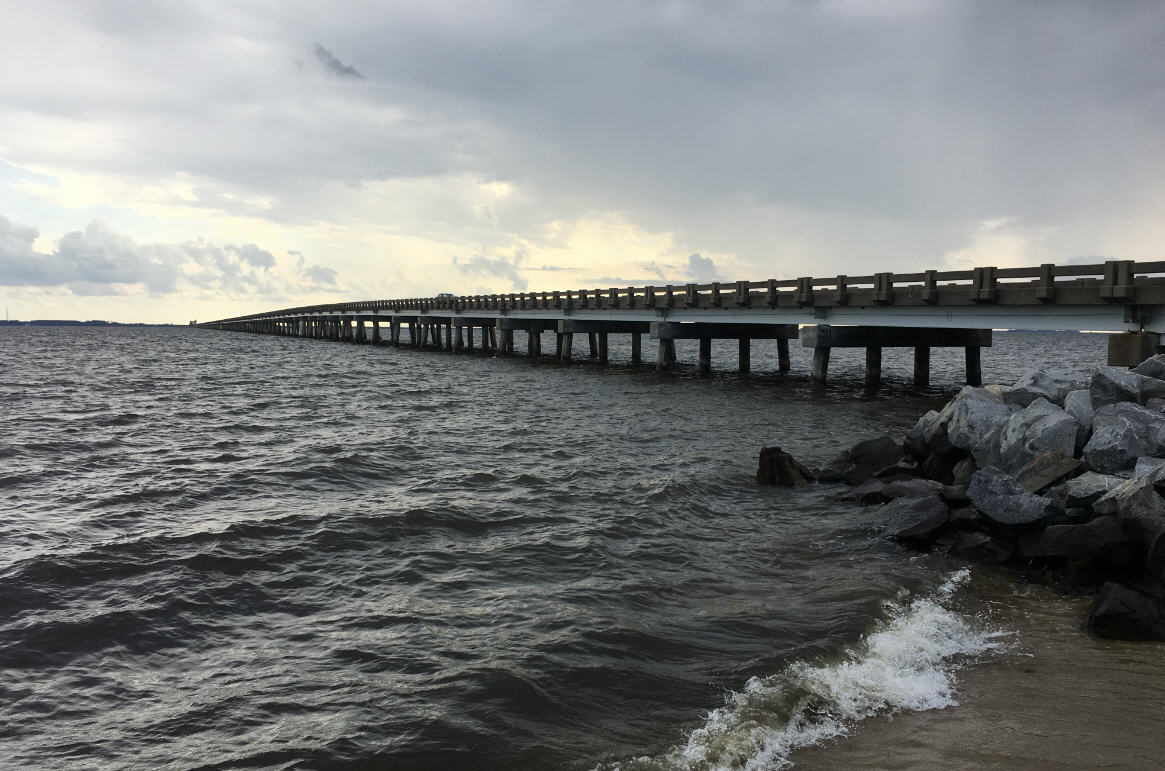Lawyers for both sides in the Cape Hatteras Access Preservation lawsuit to stop the final ORV regulation at the Cape Hatteras National Seashore conferred by telephone last month on how to proceed with the case and reported back to the federal court. The complaint, filed Feb. 9 in U.S. District Court for the District of Columbia, names as defendants Ken Salazar, Secretary of the Department of the Interior, Jonathan Jarvis, director of the National Park Service, and Mike Murray, superintendent of the Cape Hatteras National Seashore. The case was assigned to U.S. District Court Judge, Emmet G. Sullivan, who later allowed three environmental groups to enter the case as defendant-interveners. The groups are the Defenders of Wildlife, National Audubon Society, and the National Parks Preservation Society. They are represented by the Southern Environmental Law Center. The complaint asks the court to determine that the Park Service acted improperly and to prevent NPS from implementing its final plan and rule, which became effective Feb. 15. CHAPA is a project of the Outer Banks Preservation Association, a group dedicated to preserving and protecting the historical use of the beach on the Outer Banks and specifically the Cape Hatteras National Seashore. In its complaint, CHAPA takes issue with just about every step in the process of ORV rulemaking. “An ORV management plan and a final rule that imposes severe restriction on ORV use at CHNSRA were foreordained from the time that NPS began its planning process,” the complaint says. Attorneys for the federal government responded with an affirmative defense – that CHAPA failed to make claims upon which relief can be granted. “To the extent that a response is required, Federal Defendants deny that Plaintiff is entitled to the relief requested or any relief whatsoever.” An affirmative defense is defined as “a defense in which the defendant introduces evidence, which, if found to be credible, will negate criminal or civil liability, even if it is proven that the defendant committed the alleged acts.” The next step, as ordered by Sullivan, was for the parties to “meet and confer,” which they did on May 23. On May 31, they filed their report on the conference. The lawyers agreed that the case is an “an action for review on the administrative record,” which in this case is the Park Service’s process of developing an Environmental Impact Statement, choosing an alternative, and making a final rule. The defendants said in the report that they expect the administrative record will be “quite voluminous.” They have started the process but said the best estimate is that it may take until Sept. 15 to have the record ready for filing. The parties could not agree on a proposed or stipulated date for filing the administrative record and, therefore, they said could not agree on dates for follow-up motions, such as cross motions for summary judgment. Summary judgment is a court order ruling that no factual issues remain to be tried and therefore a cause of action or all causes of action in a complaint can be decided upon certain facts without trial. In this case, lawyers on both sides will probably ask the judge for a summary judgment. Also, after the administrative record is filed, there can be motions to supplement it with information not included in the initial filing. The parties decided that by July 9, the federal defendants will file a status report on the administrative record, including a detailed explanation of what is left to be done. On Tuesday, June 5, Sullivan agreed to the recommendations of the lawyers for the parties involved, ordering the status report no later than July 9. He also scheduled a status hearing in the case for Thursday, July 26, at 11:30 a.m. FOR MORE INFORMATION Click here to read the Meet and Confer Report of the parties in the lawsuit.
UPDATE: CHAPA lawsuit over final ORV rule moves along – slowly
By IRENE NOLAN
By IRENE NOLAN
By IRENE NOLAN
Lawyers for both sides in the Cape Hatteras Access Preservation lawsuit to stop the final ORV regulation at the Cape Hatteras National Seashore conferred by telephone last month on how to proceed with the case and reported back to the federal court.
The complaint, filed Feb. 9 in U.S. District Court for the District of Columbia, names as defendants Ken Salazar, Secretary of the Department of the Interior, Jonathan Jarvis, director of the National Park Service, and Mike Murray, superintendent of the Cape Hatteras National Seashore.
The case was assigned to U.S. District Court Judge, Emmet G. Sullivan, who later allowed three environmental groups to enter the case as defendant-interveners. The groups are the Defenders of Wildlife, National Audubon Society, and the National Parks Preservation Society. They are represented by the Southern Environmental Law Center.
The complaint asks the court to determine that the Park Service acted improperly and to prevent NPS from implementing its final plan and rule, which became effective Feb. 15.
CHAPA is a project of the Outer Banks Preservation Association, a group dedicated to preserving and protecting the historical use of the beach on the Outer Banks and specifically the Cape Hatteras National Seashore.
In its complaint, CHAPA takes issue with just about every step in the process of ORV rulemaking.
“An ORV management plan and a final rule that imposes severe restriction on ORV use at CHNSRA were foreordained from the time that NPS began its planning process,” the complaint says.
Attorneys for the federal government responded with an affirmative defense – that CHAPA failed to make claims upon which relief can be granted.
“To the extent that a response is required, Federal Defendants deny that Plaintiff is entitled to the relief requested or any relief whatsoever.”
An affirmative defense is defined as “a defense in which the defendant introduces evidence, which, if found to be credible, will negate criminal or civil liability, even if it is proven that the defendant committed the alleged acts.”
The next step, as ordered by Sullivan, was for the parties to “meet and confer,” which they did on May 23.
On May 31, they filed their report on the conference.
The lawyers agreed that the case is an “an action for review on the administrative record,” which in this case is the Park Service’s process of developing an Environmental Impact Statement, choosing an alternative, and making a final rule.
The defendants said in the report that they expect the administrative record will be “quite voluminous.” They have started the process but said the best estimate is that it may take until Sept. 15 to have the record ready for filing.
The parties could not agree on a proposed or stipulated date for filing the administrative record and, therefore, they said could not agree on dates for follow-up motions, such as cross motions for summary judgment.
Summary judgment is a court order ruling that no factual issues remain to be tried and therefore a cause of action or all causes of action in a complaint can be decided upon certain facts without trial. In this case, lawyers on both sides will probably ask the judge for a summary judgment.
Also, after the administrative record is filed, there can be motions to supplement it with information not included in the initial filing.
The parties decided that by July 9, the federal defendants will file a status report on the administrative record, including a detailed explanation of what is left to be done.
On Tuesday, June 5, Sullivan agreed to the recommendations of the lawyers for the parties involved, ordering the status report no later than July 9.
He also scheduled a status hearing in the case for Thursday, July 26, at 11:30 a.m.
FOR MORE INFORMATION
Click here to read the Meet and Confer Report of the parties in the lawsuit.
Lawyers for both sides in the Cape Hatteras Access Preservation lawsuit to stop the final ORV regulation at the Cape Hatteras National Seashore conferred by telephone last month on how to proceed with the case and reported back to the federal court.
The complaint, filed Feb. 9 in U.S. District Court for the District of Columbia, names as defendants Ken Salazar, Secretary of the Department of the Interior, Jonathan Jarvis, director of the National Park Service, and Mike Murray, superintendent of the Cape Hatteras National Seashore.
The case was assigned to U.S. District Court Judge, Emmet G. Sullivan, who later allowed three environmental groups to enter the case as defendant-interveners. The groups are the Defenders of Wildlife, National Audubon Society, and the National Parks Preservation Society. They are represented by the Southern Environmental Law Center.
The complaint asks the court to determine that the Park Service acted improperly and to prevent NPS from implementing its final plan and rule, which became effective Feb. 15.
CHAPA is a project of the Outer Banks Preservation Association, a group dedicated to preserving and protecting the historical use of the beach on the Outer Banks and specifically the Cape Hatteras National Seashore.
In its complaint, CHAPA takes issue with just about every step in the process of ORV rulemaking.
“An ORV management plan and a final rule that imposes severe restriction on ORV use at CHNSRA were foreordained from the time that NPS began its planning process,” the complaint says.
Attorneys for the federal government responded with an affirmative defense – that CHAPA failed to make claims upon which relief can be granted.
“To the extent that a response is required, Federal Defendants deny that Plaintiff is entitled to the relief requested or any relief whatsoever.”
An affirmative defense is defined as “a defense in which the defendant introduces evidence, which, if found to be credible, will negate criminal or civil liability, even if it is proven that the defendant committed the alleged acts.”
The next step, as ordered by Sullivan, was for the parties to “meet and confer,” which they did on May 23.
On May 31, they filed their report on the conference.
The lawyers agreed that the case is an “an action for review on the administrative record,” which in this case is the Park Service’s process of developing an Environmental Impact Statement, choosing an alternative, and making a final rule.
The defendants said in the report that they expect the administrative record will be “quite voluminous.” They have started the process but said the best estimate is that it may take until Sept. 15 to have the record ready for filing.
The parties could not agree on a proposed or stipulated date for filing the administrative record and, therefore, they said could not agree on dates for follow-up motions, such as cross motions for summary judgment.
Summary judgment is a court order ruling that no factual issues remain to be tried and therefore a cause of action or all causes of action in a complaint can be decided upon certain facts without trial. In this case, lawyers on both sides will probably ask the judge for a summary judgment.
Also, after the administrative record is filed, there can be motions to supplement it with information not included in the initial filing.
The parties decided that by July 9, the federal defendants will file a status report on the administrative record, including a detailed explanation of what is left to be done.
On Tuesday, June 5, Sullivan agreed to the recommendations of the lawyers for the parties involved, ordering the status report no later than July 9.
He also scheduled a status hearing in the case for Thursday, July 26, at 11:30 a.m.
FOR MORE INFORMATION
Click here to read the Meet and Confer Report of the parties in the lawsuit.
Lawyers for both sides in the Cape Hatteras Access Preservation lawsuit to stop the final ORV regulation at the Cape Hatteras National Seashore conferred by telephone last month on how to proceed with the case and reported back to the federal court.
The complaint, filed Feb. 9 in U.S. District Court for the District of Columbia, names as defendants Ken Salazar, Secretary of the Department of the Interior, Jonathan Jarvis, director of the National Park Service, and Mike Murray, superintendent of the Cape Hatteras National Seashore.
The case was assigned to U.S. District Court Judge, Emmet G. Sullivan, who later allowed three environmental groups to enter the case as defendant-interveners. The groups are the Defenders of Wildlife, National Audubon Society, and the National Parks Preservation Society. They are represented by the Southern Environmental Law Center.
The complaint asks the court to determine that the Park Service acted improperly and to prevent NPS from implementing its final plan and rule, which became effective Feb. 15.
CHAPA is a project of the Outer Banks Preservation Association, a group dedicated to preserving and protecting the historical use of the beach on the Outer Banks and specifically the Cape Hatteras National Seashore.
In its complaint, CHAPA takes issue with just about every step in the process of ORV rulemaking.
“An ORV management plan and a final rule that imposes severe restriction on ORV use at CHNSRA were foreordained from the time that NPS began its planning process,” the complaint says.
Attorneys for the federal government responded with an affirmative defense – that CHAPA failed to make claims upon which relief can be granted.
“To the extent that a response is required, Federal Defendants deny that Plaintiff is entitled to the relief requested or any relief whatsoever.”
An affirmative defense is defined as “a defense in which the defendant introduces evidence, which, if found to be credible, will negate criminal or civil liability, even if it is proven that the defendant committed the alleged acts.”
The next step, as ordered by Sullivan, was for the parties to “meet and confer,” which they did on May 23.
On May 31, they filed their report on the conference.
The lawyers agreed that the case is an “an action for review on the administrative record,” which in this case is the Park Service’s process of developing an Environmental Impact Statement, choosing an alternative, and making a final rule.
The defendants said in the report that they expect the administrative record will be “quite voluminous.” They have started the process but said the best estimate is that it may take until Sept. 15 to have the record ready for filing.
The parties could not agree on a proposed or stipulated date for filing the administrative record and, therefore, they said could not agree on dates for follow-up motions, such as cross motions for summary judgment.
Summary judgment is a court order ruling that no factual issues remain to be tried and therefore a cause of action or all causes of action in a complaint can be decided upon certain facts without trial. In this case, lawyers on both sides will probably ask the judge for a summary judgment.
Also, after the administrative record is filed, there can be motions to supplement it with information not included in the initial filing.
The parties decided that by July 9, the federal defendants will file a status report on the administrative record, including a detailed explanation of what is left to be done.
On Tuesday, June 5, Sullivan agreed to the recommendations of the lawyers for the parties involved, ordering the status report no later than July 9.
He also scheduled a status hearing in the case for Thursday, July 26, at 11:30 a.m.
FOR MORE INFORMATION
Click here to read the Meet and Confer Report of the parties in the lawsuit.
Lawyers for both sides in the Cape Hatteras Access Preservation lawsuit to stop the final ORV regulation at the Cape Hatteras National Seashore conferred by telephone last month on how to proceed with the case and reported back to the federal court.
The complaint, filed Feb. 9 in U.S. District Court for the District of Columbia, names as defendants Ken Salazar, Secretary of the Department of the Interior, Jonathan Jarvis, director of the National Park Service, and Mike Murray, superintendent of the Cape Hatteras National Seashore.
The case was assigned to U.S. District Court Judge, Emmet G. Sullivan, who later allowed three environmental groups to enter the case as defendant-interveners. The groups are the Defenders of Wildlife, National Audubon Society, and the National Parks Preservation Society. They are represented by the Southern Environmental Law Center.
The complaint asks the court to determine that the Park Service acted improperly and to prevent NPS from implementing its final plan and rule, which became effective Feb. 15.
CHAPA is a project of the Outer Banks Preservation Association, a group dedicated to preserving and protecting the historical use of the beach on the Outer Banks and specifically the Cape Hatteras National Seashore.
In its complaint, CHAPA takes issue with just about every step in the process of ORV rulemaking.
“An ORV management plan and a final rule that imposes severe restriction on ORV use at CHNSRA were foreordained from the time that NPS began its planning process,” the complaint says.
Attorneys for the federal government responded with an affirmative defense – that CHAPA failed to make claims upon which relief can be granted.
“To the extent that a response is required, Federal Defendants deny that Plaintiff is entitled to the relief requested or any relief whatsoever.”
An affirmative defense is defined as “a defense in which the defendant introduces evidence, which, if found to be credible, will negate criminal or civil liability, even if it is proven that the defendant committed the alleged acts.”
The next step, as ordered by Sullivan, was for the parties to “meet and confer,” which they did on May 23.
On May 31, they filed their report on the conference.
The lawyers agreed that the case is an “an action for review on the administrative record,” which in this case is the Park Service’s process of developing an Environmental Impact Statement, choosing an alternative, and making a final rule.
The defendants said in the report that they expect the administrative record will be “quite voluminous.” They have started the process but said the best estimate is that it may take until Sept. 15 to have the record ready for filing.
The parties could not agree on a proposed or stipulated date for filing the administrative record and, therefore, they said could not agree on dates for follow-up motions, such as cross motions for summary judgment.
Summary judgment is a court order ruling that no factual issues remain to be tried and therefore a cause of action or all causes of action in a complaint can be decided upon certain facts without trial. In this case, lawyers on both sides will probably ask the judge for a summary judgment.
Also, after the administrative record is filed, there can be motions to supplement it with information not included in the initial filing.
The parties decided that by July 9, the federal defendants will file a status report on the administrative record, including a detailed explanation of what is left to be done.
On Tuesday, June 5, Sullivan agreed to the recommendations of the lawyers for the parties involved, ordering the status report no later than July 9.
He also scheduled a status hearing in the case for Thursday, July 26, at 11:30 a.m.
FOR MORE INFORMATION
Click here to read the Meet and Confer Report of the parties in the lawsuit.
Subject
Name
(required, will not be published)
(required, will not be published)
City :
State :
Your Comments:
May be posted on the Letters to the Editor page at the discretion of the editor.
May be posted on the Letters to the Editor page at the discretion of the editor.
May be posted on the Letters to the Editor page at the discretion of the editor.
May be posted on the Letters to the Editor page at the discretion of the editor.








